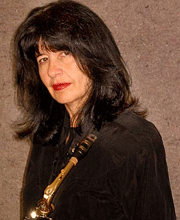Joy Harjo is unique in that, not only is she an excellent writer, but she is a musician and a performer as well. That’s probably why her poems, including “Remember,” are so lyrical and seem to trip off the tongue. In addition to its musical quality, “Remember” also delivers a strong message: that people must cherish life, must reflect on what they have been given and earned, and not take the small things for granted.
Harjo reminds us that we are all a part of nature, and therefore we should appreciate it. The author instructs, “Remember the sun’s birth at dawn, that is the/strongest point of time. Remember sundown/and the giving away to night” (5-7). The sun’s “birth,” its arrival, at dawn is the “strongest point of time” because like our own births, it starts everything anew. Each day is a new day, and a gift of time to us all. And by the same token, “sundown,” or death, is just as important, since it also brings us to a new place, a new stage. In line with this way of thinking, Harjo asks each individual to, “Remember the sky that you were born under,/know each of the star’s stories” (1-2). If we slow down and take the time to think about the small things, or “each of the star’s stories,” we will be able to respect and understand life’s beauty.
The poem calls on us to remember our roots, not only our family histories, but also the origins of the earth, which connects all of us. It states, “Remember your birth, how your mother struggled/to give you form and breath. You are evidence of/her life, and her mother’s, and hers” (8-10), as well as “Remember the earth whose skin you are:/red earth, black earth, yellow earth, white earth/brown earth, we are earth” (12-14). In saying this, the poet stresses the importance of people as individuals, but also as the collective. Even by remembering our own ancestors, we are thinking outside of ourselves and appreciating where we come from. This sense of community is even further emphasized with the following lines:
Remember that you are all people and that all people are you.
Remember that you are this universe and that this universe is you.
Remember that all is in motion, is growing, is you. (21-23)
The piece also seeks to underline that it is not merely that nature is a part of our lives, but rather, that our lives are a part of nature. We are all part of something larger than ourselves, and this is something that must be recognized in order to get a complete grasp on our lives. And finally, Harjo concludes with the point that, above all, life is beautiful, and that alone is worth remembering: “Remember the dance that language is, that life is./Remember” (25-26). Life may be a different kind of dance for each individual, but it is an art form nonetheless. Being grateful for all aspects of life, even the small ones, will help us value the whole of it all the more. And taking the time to meditate on the small things, even for just a few moments, will help get us closer to this point of understanding and peace.
For more on Joy Harjo and her work, check out this site.
If you enjoyed this post, you might like this one as well.

 “Remember” by Joy Harjo
“Remember” by Joy Harjo




 First the Wealth Gap, Now the U.S. Has a Growing Health Gap
First the Wealth Gap, Now the U.S. Has a Growing Health Gap
 How to Comfort A Dying Loved One
How to Comfort A Dying Loved One
 Our Annual Seven Holiday Gifts for Someone Who Is Grieving, 2024 Edition
Our Annual Seven Holiday Gifts for Someone Who Is Grieving, 2024 Edition














